Abstract
Biomarkers are potentially powerful tools for use in research and regulation. Their derivation from biologic specimens collected from human subjects does, however, present many ethical implications. Ethical issues are relevant in almost each facet of human biomarker research studies: design, identification and recruitment of subjects, handling and use of the data, and interpretation and communication of results. Researchers also face a number of dilemmas when considering the use of human biologic specimens and new biomarkers. The mere fact that such markers are the result of measurements in human specimens gives the appearance of being more accurate than traditional sources of information such as questionnaires or environmental monitoring; yet, this may not always be the case. The meaning of the results of biomarker studies may be unclear because the purpose of the study is usually for research rather than clinical purposes. There generally are no established normal ranges for biomarkers and the interpretation of findings are often difficult. Researchers may not communicate these results to subjects or consider followup action because the task may be too difficult or undefined, or the reaction of the subject cannot be anticipated. A wide range of practices in this regard exists among researchers. Many questions remain unanswered about the use of biologic specimens. These include questions of ownership and access to specimens. Related to this is the question of whether specimens collected for one research purpose can be used for an entirely different research purpose. This is still an open question.(ABSTRACT TRUNCATED AT 250 WORDS)
Full text
PDF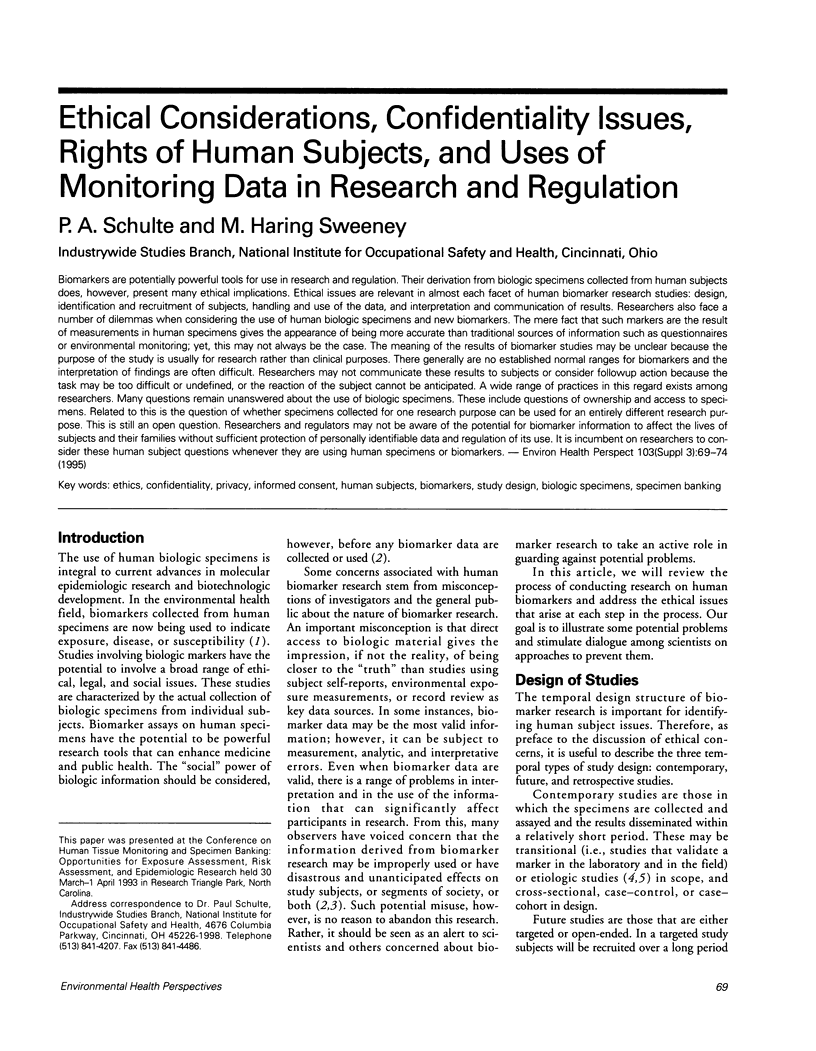
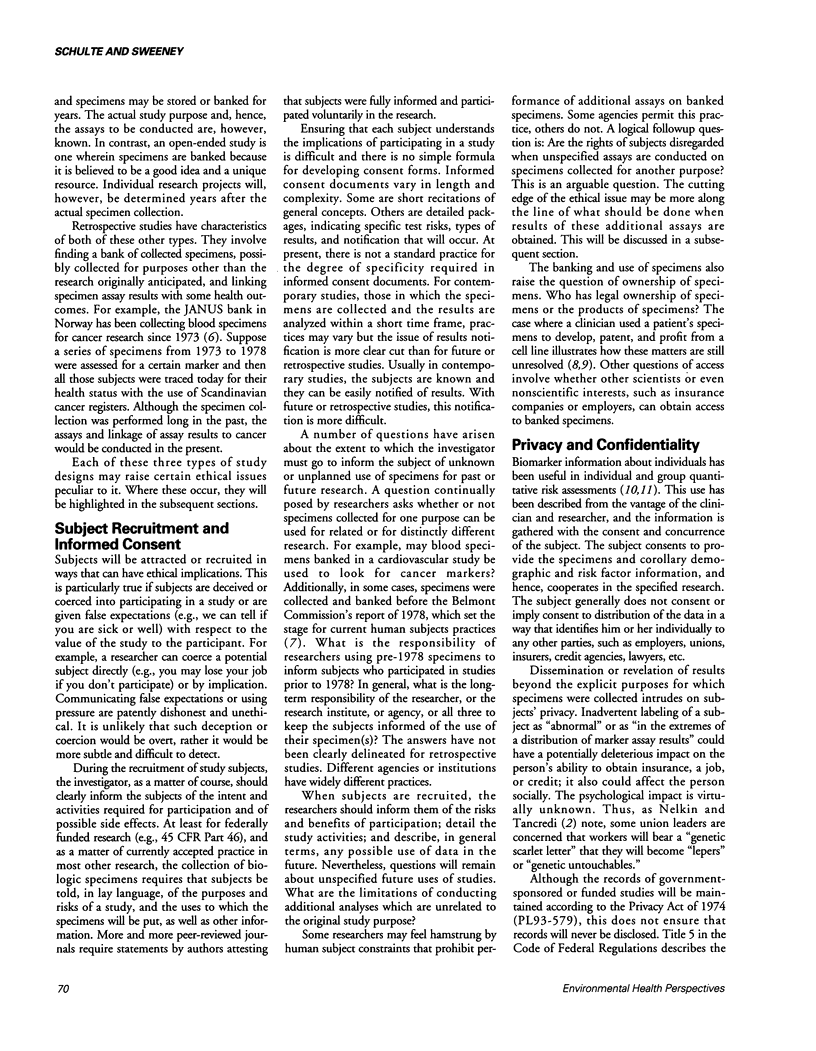
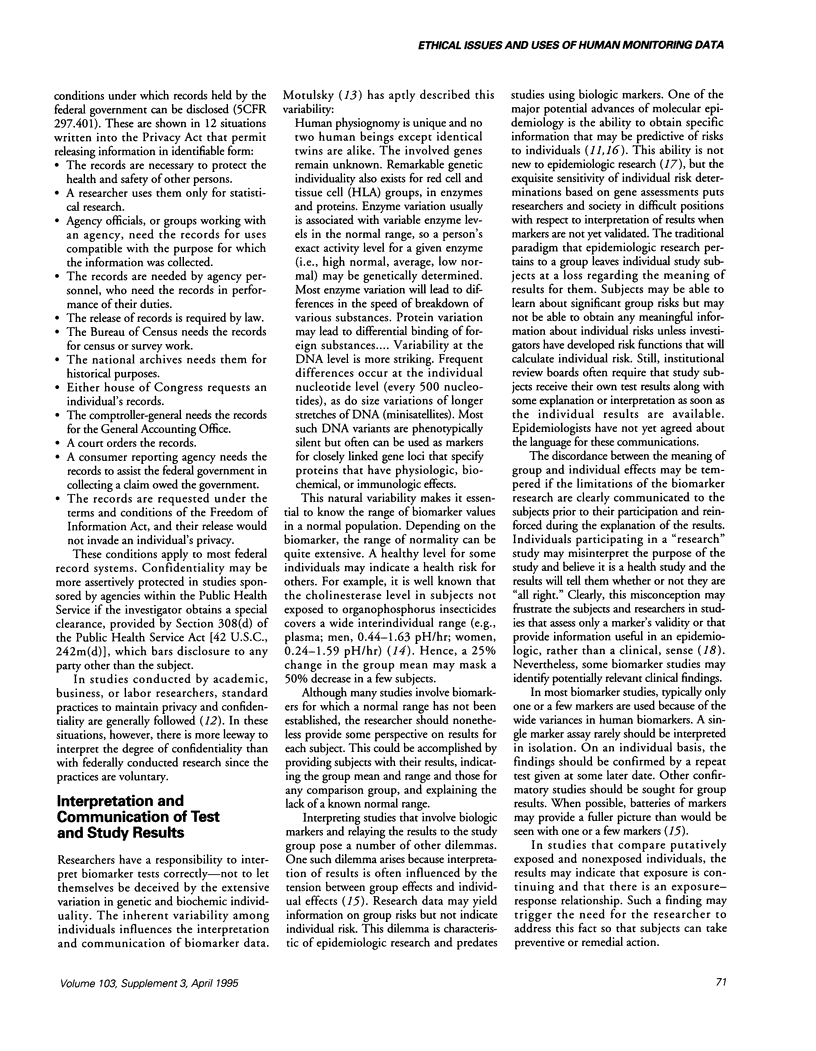
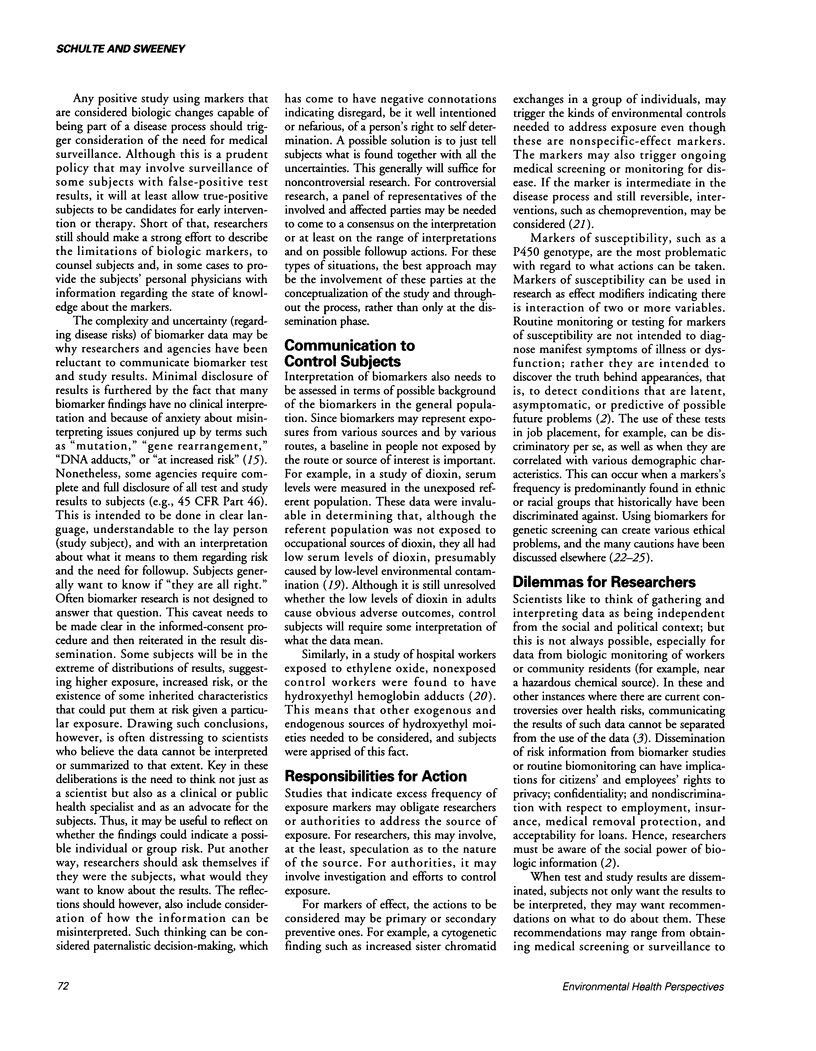
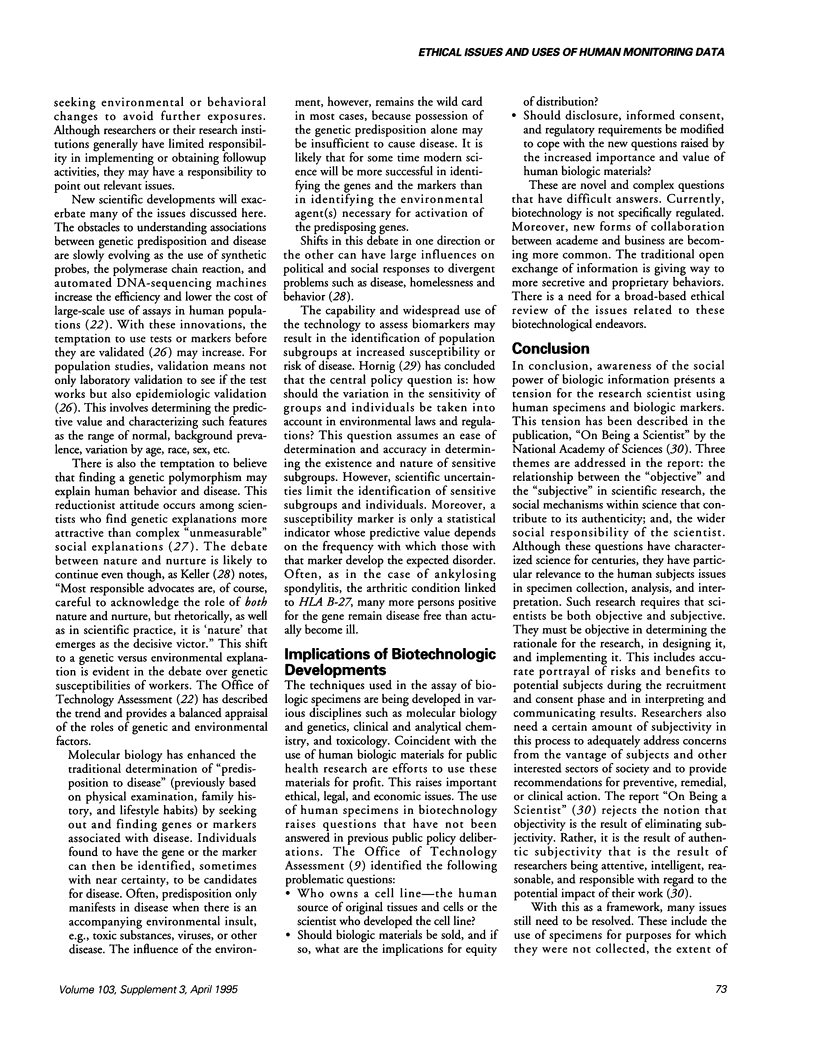
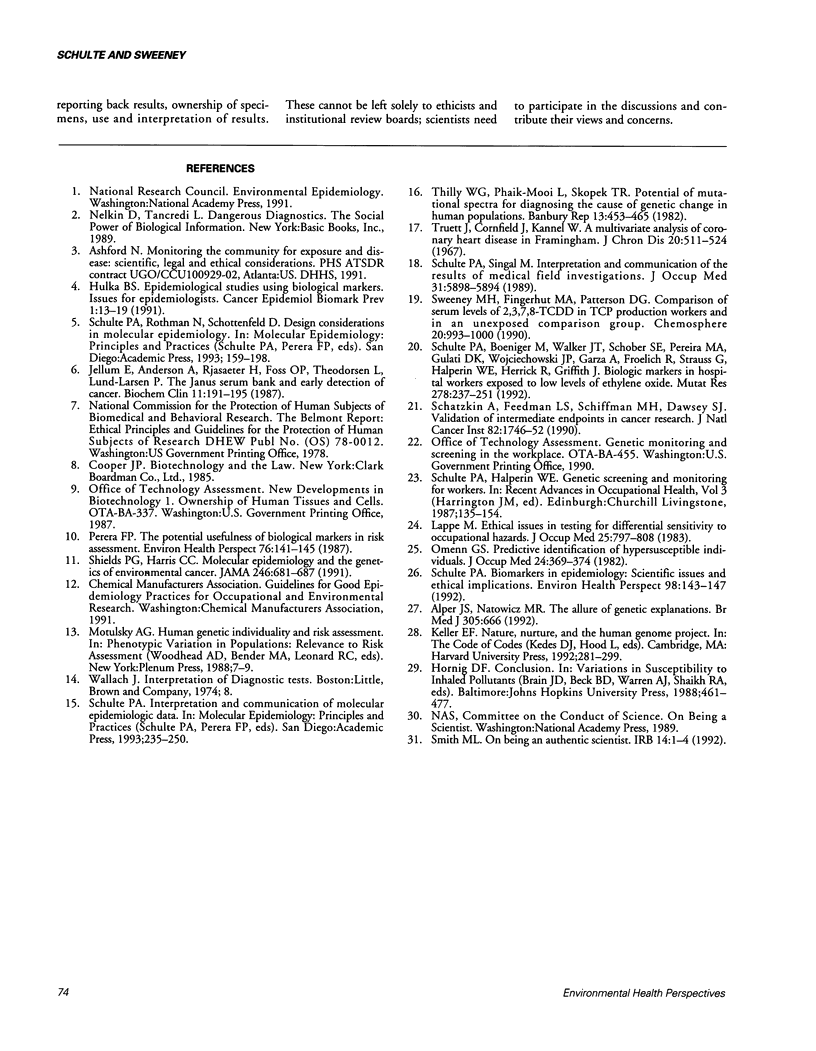
Selected References
These references are in PubMed. This may not be the complete list of references from this article.
- Alper J. S., Natowicz M. R. The allure of genetic explanations. BMJ. 1992 Sep 19;305(6855):666–666. doi: 10.1136/bmj.305.6855.666. [DOI] [PMC free article] [PubMed] [Google Scholar]
- Hulka B. S. ASPO Distinguished Achievement Award Lecture. Epidemiological studies using biological markers: issues for epidemiologists. Cancer Epidemiol Biomarkers Prev. 1991 Nov-Dec;1(1):13–19. [PubMed] [Google Scholar]
- Lappé M. Ethical issues in testing for differential sensitivity to occupational hazards. J Occup Med. 1983 Nov;25(11):797–808. [PubMed] [Google Scholar]
- Omenn G. S. Predictive identification of hypersusceptible individuals. J Occup Med. 1982 May;24(5):369–374. doi: 10.1097/00043764-198205000-00007. [DOI] [PubMed] [Google Scholar]
- Perera F. The potential usefulness of biological markers in risk assessment. Environ Health Perspect. 1987 Dec;76:141–145. doi: 10.1289/ehp.8776141. [DOI] [PMC free article] [PubMed] [Google Scholar]
- Schatzkin A., Freedman L. S., Schiffman M. H., Dawsey S. M. Validation of intermediate end points in cancer research. J Natl Cancer Inst. 1990 Nov 21;82(22):1746–1752. doi: 10.1093/jnci/82.22.1746. [DOI] [PubMed] [Google Scholar]
- Schulte P. A. Biomarkers in epidemiology: scientific issues and ethical implications. Environ Health Perspect. 1992 Nov;98:143–147. doi: 10.1289/ehp.9298143. [DOI] [PMC free article] [PubMed] [Google Scholar]
- Schulte P. A., Boeniger M., Walker J. T., Schober S. E., Pereira M. A., Gulati D. K., Wojciechowski J. P., Garza A., Froelich R., Strauss G. Biologic markers in hospital workers exposed to low levels of ethylene oxide. Mutat Res. 1992 Apr;278(4):237–251. doi: 10.1016/s0165-1218(10)80003-5. [DOI] [PubMed] [Google Scholar]
- Shields P. G., Harris C. C. Molecular epidemiology and the genetics of environmental cancer. JAMA. 1991 Aug 7;266(5):681–687. [PubMed] [Google Scholar]
- Smith Martin L. On being an authentic scientist. IRB. 1992 Mar-Apr;14(2):1–4. [PubMed] [Google Scholar]
- Truett J., Cornfield J., Kannel W. A multivariate analysis of the risk of coronary heart disease in Framingham. J Chronic Dis. 1967 Jul;20(7):511–524. doi: 10.1016/0021-9681(67)90082-3. [DOI] [PubMed] [Google Scholar]


